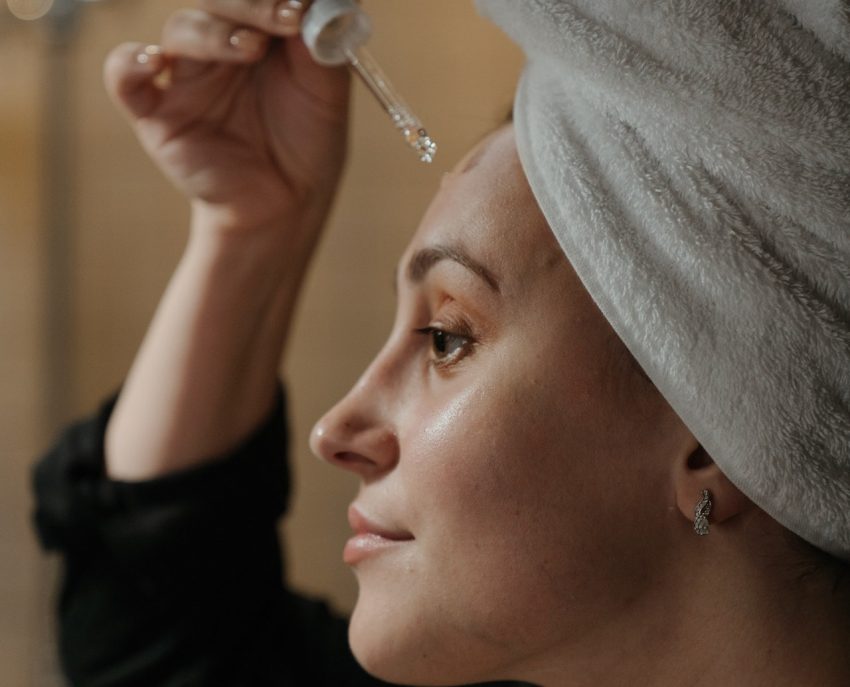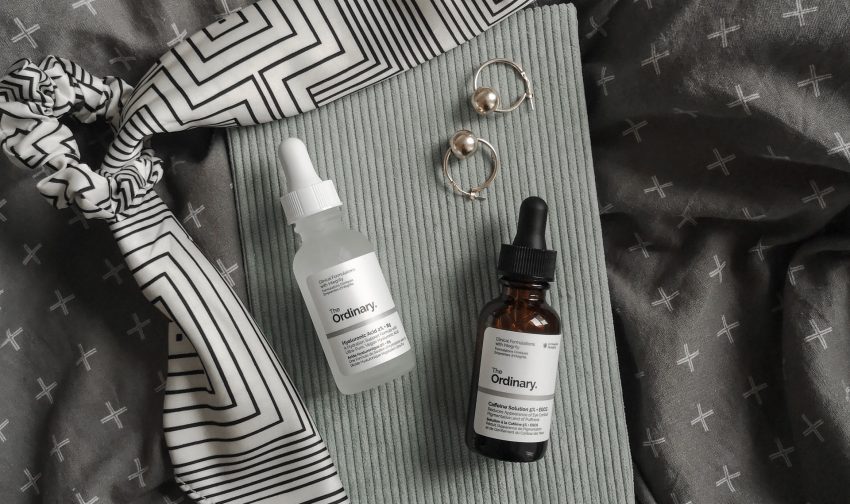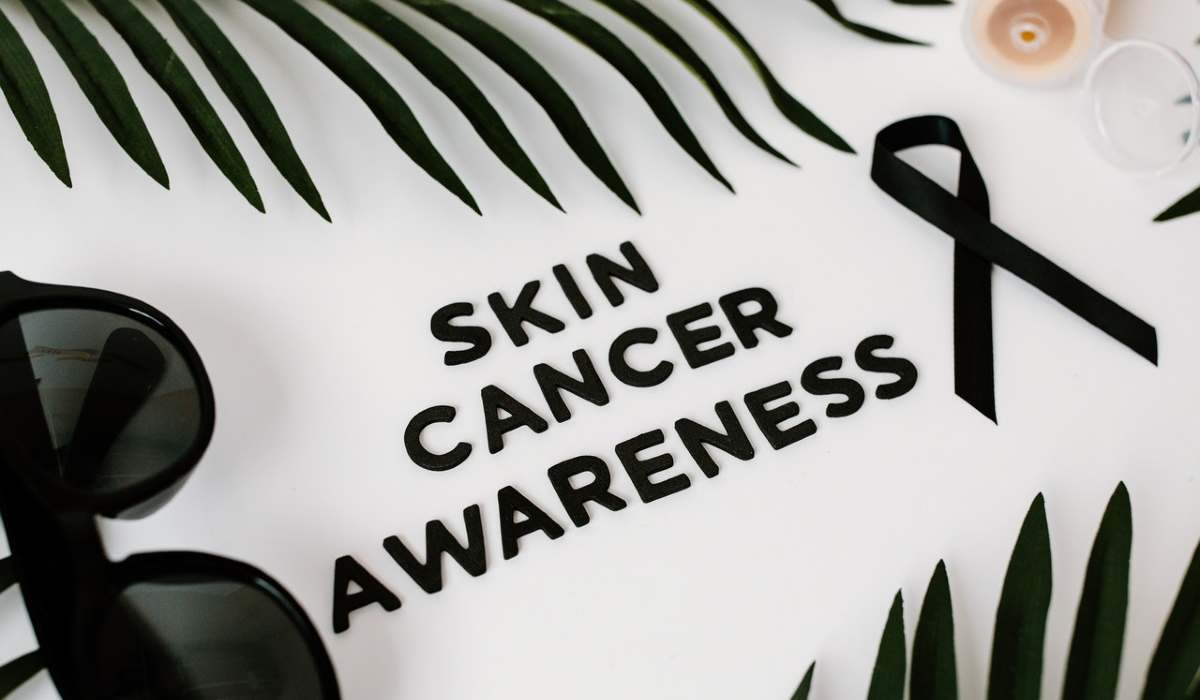Changes in our skin as we age are inevitable, including loss of moisture, changes in…

Simple Skincare Science: Niacinamide
At Cambridge Laser Clinic, we talk about skincare ingredients all the time. But what are they, really?
Buzzwords like retinol, hyaluronic acid, and yes, niacinamide are often thrown into the mix. We all know they’re good for our skin, but we don’t always know why. So, we thought it was time to give these magic ingredients their moment to shine. Starting with the always versatile niacinamide.
What is niacinamide?
Niacinamide is a type of Vitamin B3. It’s a water-soluble vitamin that works to:
- Strengthen and brighten the skin
- Tighten and minimise your pores
- Soften the appearance of fine lines and wrinkles
It occurs naturally in various foods, though only in small amounts. It’s also one of the few forms of Vitamin B3 that can be easily absorbed by your skin without irritating it or causing redness.
Niacinamide also helps to reduce environmental damage to your skin, as it improves the skin’s barrier, and repairs skin damage. Without niacinamide, your skin can quickly look dull, older and generally lacklustre.
Skin Benefits of Niacinamide
Since niacinamide works by locking in moisture and helping your skin to build up proteins, once it gets to work it’s an irreplaceable skincare ingredient to invest in.
A few benefits include:
Minimising Redness
Niacinamide can significantly reduce inflammation, redness and blotchiness. In turn, this can help to ease redness on the skin from conditions like eczema and acne.
Minimising Pores
Though it’s not possible to erase pores altogether, niacinamide is one of the few ingredients that works to tighten them. Over time, this can lead to a slight reduction in size.
Regulating Oil
Niacinamide is commonly used by people with oily or combination skin to help regulate sebum (oil) production. It’s great for reducing the amount of oil your glands produce, but it has benefits for other skin types too…
Retaining Moisture
By helping your skin to improve its natural ceramide (lipid) barrier, niacinamide can help your skin retain moisture. It does this by stimulating enzymes that function as antioxidants, and protein production.
Since the skin’s barrier function reduces as we get older, and these enzymes diminish, niacinamide can protect the barrier by encouraging enzyme production.
This improved barrier means your skin can retain moisture more efficiently. Which is great for mature skin, dry skin and even those with eczema.
Treating Hyperpigmentation
Niacinamide in a concentration of 5% can help to lighten dark patches and spots on the skin, when used for four weeks or more. It does this by disrupting the action of a particular enzyme required to produce melanin, which causes pigmentation.
Keratin production in the skin can increase the thickness of the skin’s outer layer. So, by preventing melanin production, niacinamide can also contribute to softer skin.
Protecting Against Sun Damage Wrinkles
It’s no means a replacement for a good SPF. However, niacinamide can help the skin to rebuild healthy cells after sun damage has occurred. It can also simultaneously protect the skin from UV light.
This includes treating fine lines and wrinkles, to an extent.
Treating Fine Lines & Wrinkles
Studies have shown that niacinamide can increase collagen production, which is linked to a reduction in the appearance of fine lines and wrinkles. It also slows the bonding of proteins and glucose within the skin, which lead to cross-linked molecules.
Cross-linked molecules of collagen are stiff and rigid. And although collagen itself is what gives our skin its elasticity, the cross-linked variety reduces it. A slower bonding process means more collagen and more elasticity.
Treating Acne
For inflammatory forms of acne, such as those with pustules or papules, niacinamide can help. With continued use, it can help to improve skin texture and reduce the number of lesions on the skin.
Since it also regulates and reduces oil production on the skin, niacinamide can help to prevent blackheads, pimples and blemishes caused by trapped oil, dead skin cells and dirt.
Niacinamide & Skin Type
Different types of skin require different products. However, some products are suitable for almost all skin types, and niacinamide happens to be one of them.
Niacinamide comes in various types of formulas and strengths, and the trick is to find the right one for your skin type.
- If you have oily skin, a higher concentration of 5-10% is best.
- If your skin is dry, a simple moisturiser that contains niacinamide will be enough.
Since it’s naturally anti-inflammatory and doesn’t increase the turnover of your skin cells, it’s unlikely to cause problems for anyone. However, if you have a reaction, it could be due to hypersensitivity, or too high a concentration.
How to Use Niacinamide
First of all, there’s no reason not to add niacinamide to your skincare routine.
You can use it morning and night, every day, and you’ll only see benefits from doing so.
If you choose to use a serum formula, then (like all serums), you should apply it before moisturiser; this will give it a chance to penetrate the skin. For those that prefer to use other products that contain niacinamide (such as moisturiser), use the product as instructed.
To get the best results, apply twice a day after cleansing.
Best Niacinamide on a Budget
If you’re interested in adding niacinamide to your skincare routine, but you’re not yet convinced, then there are reasonably priced niacinamides available to try.
Our favourite is Niacinamide 10% + Zinc 1% from The Ordinary. Aside from being readily available, this is a budget-friendly and particularly effective treatment for oily and acne-prone skin, thanks to its added zinc.
Best Niacinamide to Splurge On
Though skincare doesn’t have to cost the earth, if you’re looking to splurge, then we can help there, too.
SkinCeuticals Metacell Renewal B3 is a light and easy-to-absorb moisturiser. It’s great for dry skin and also suitable for oily types due to its gel-like texture.






